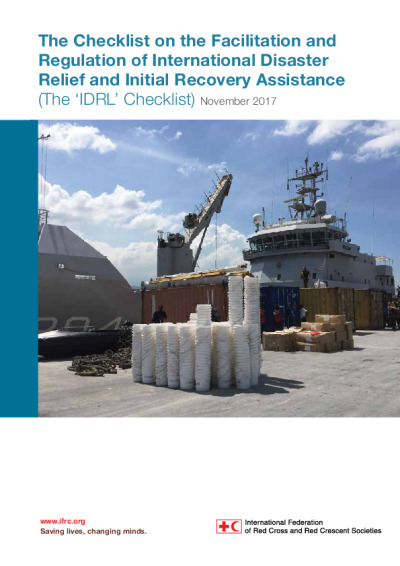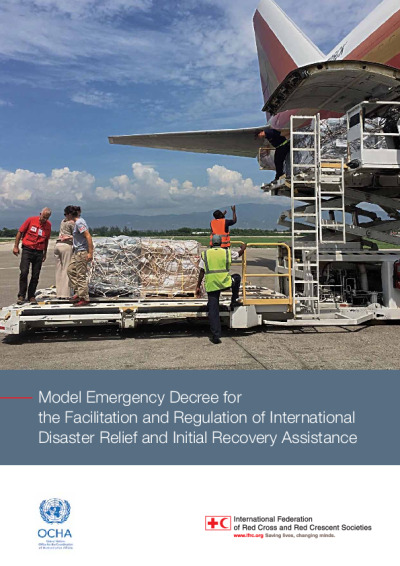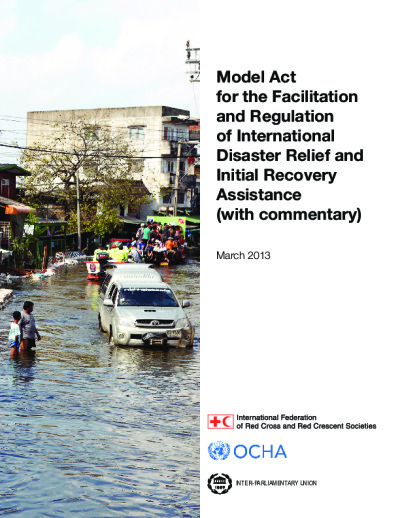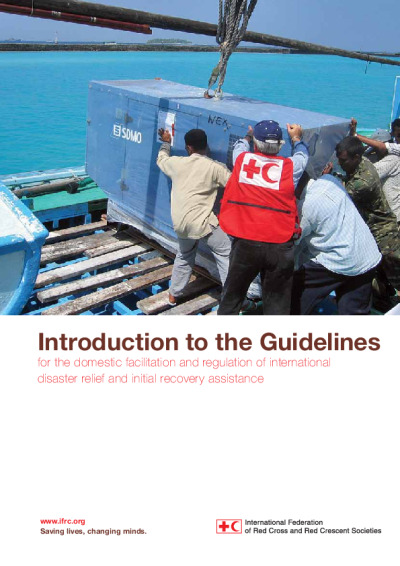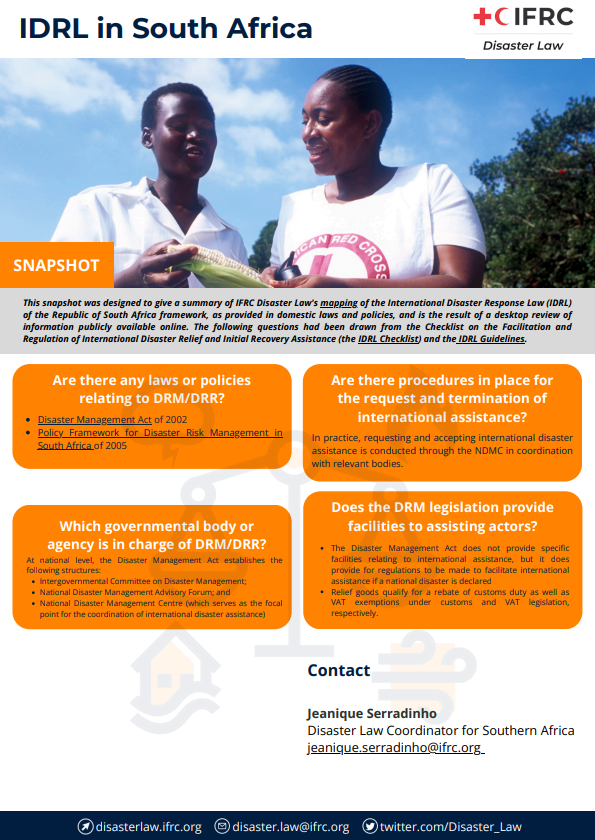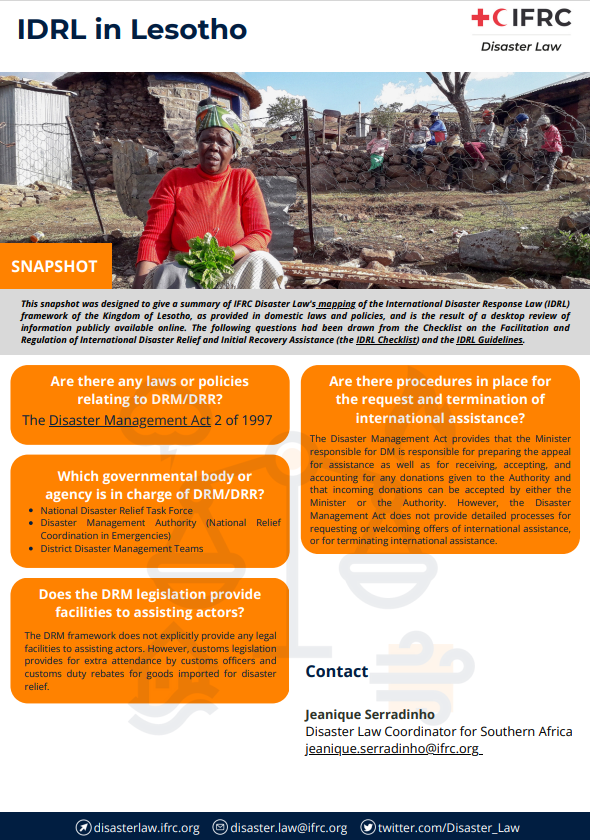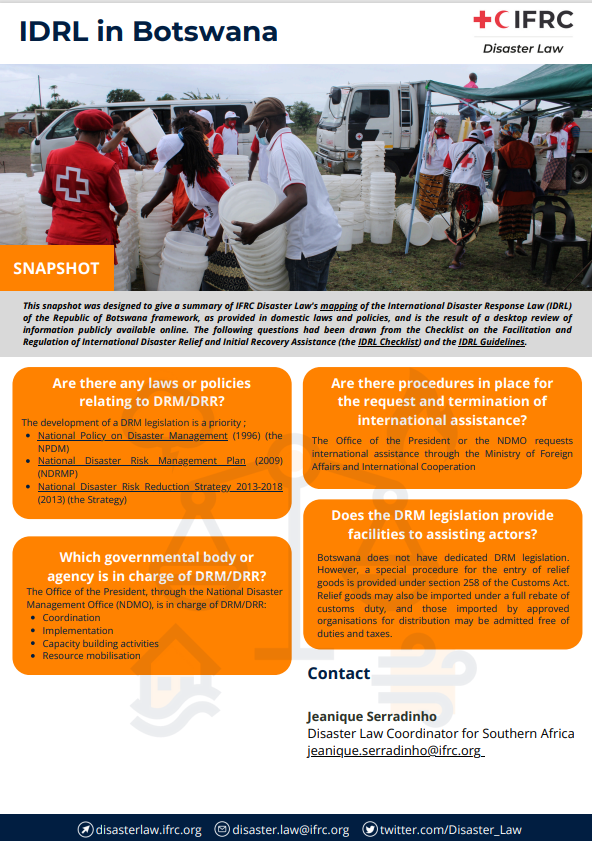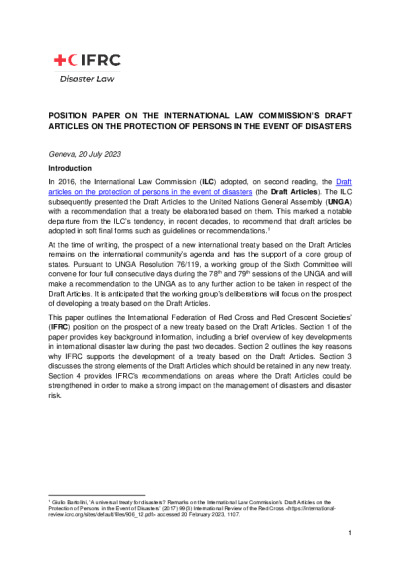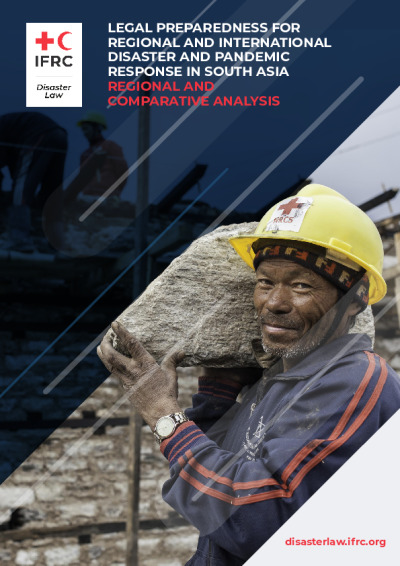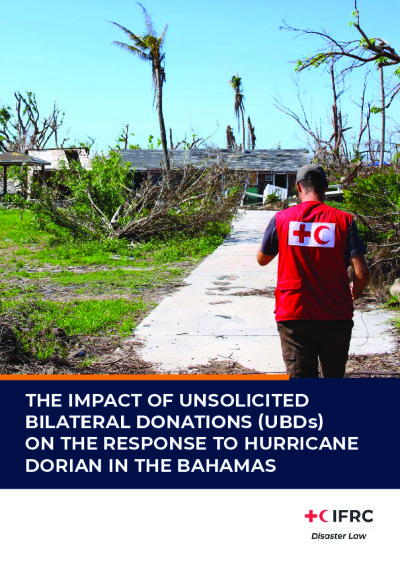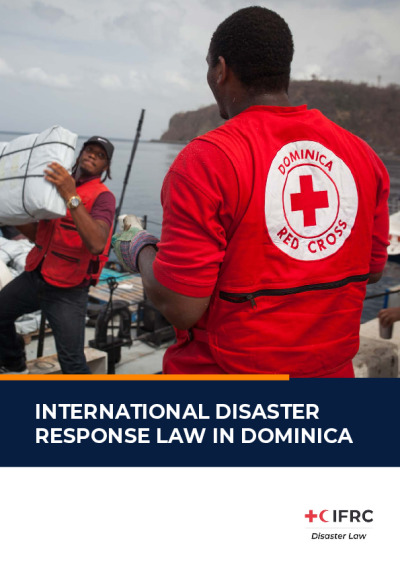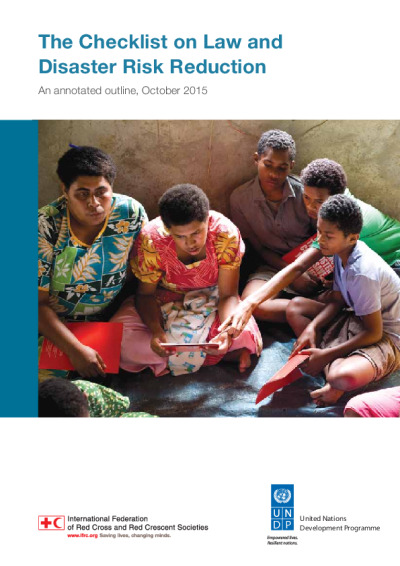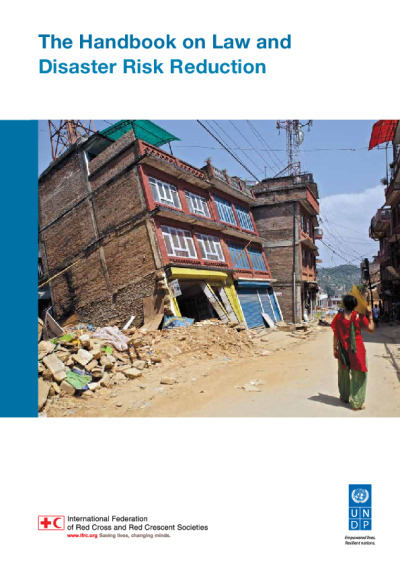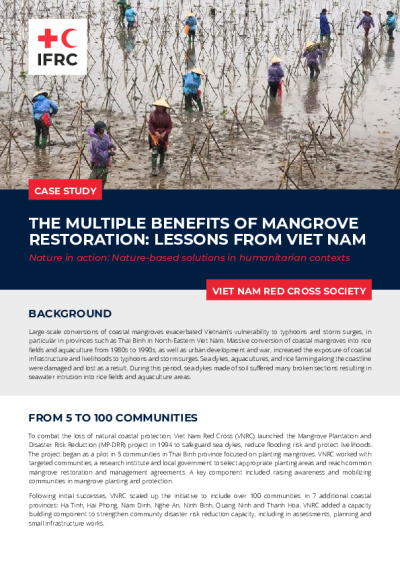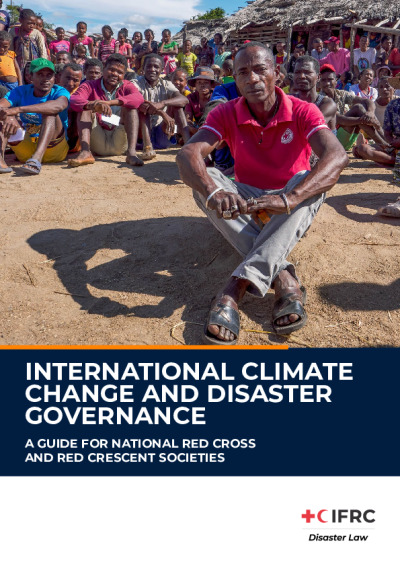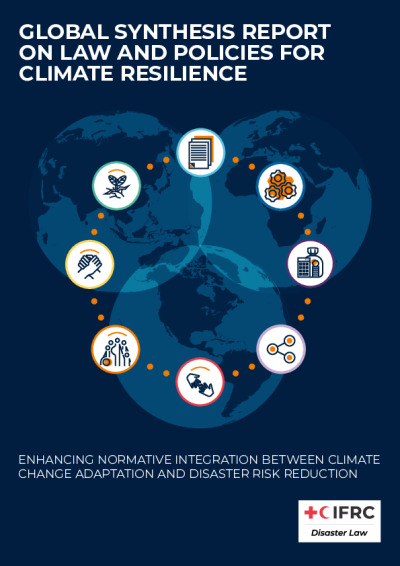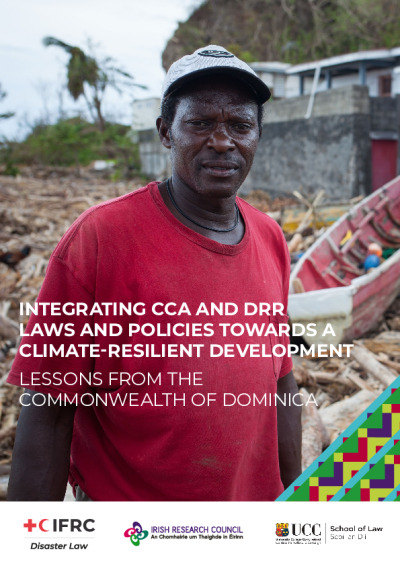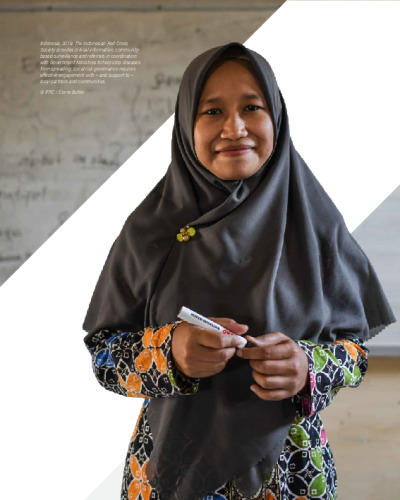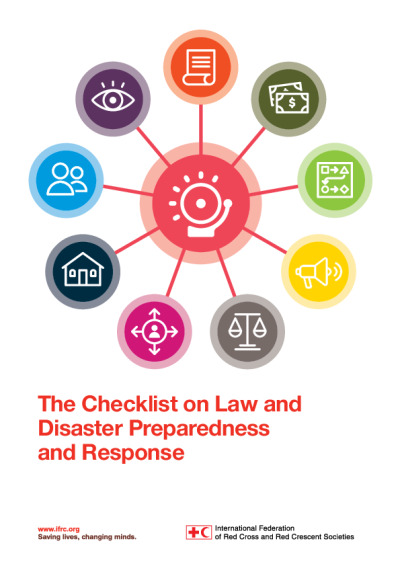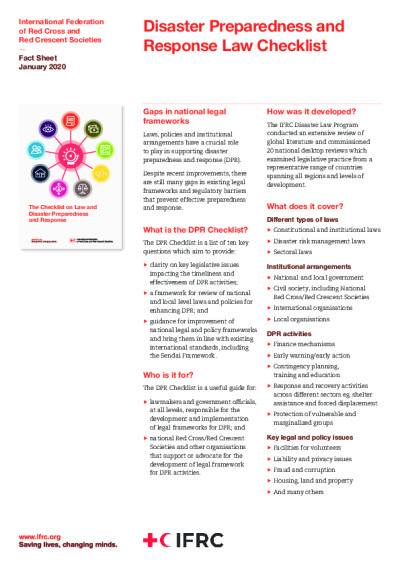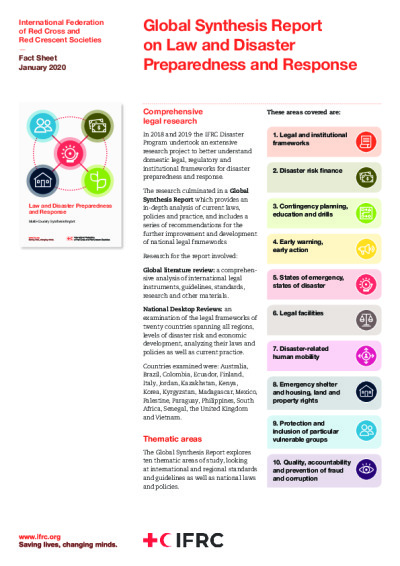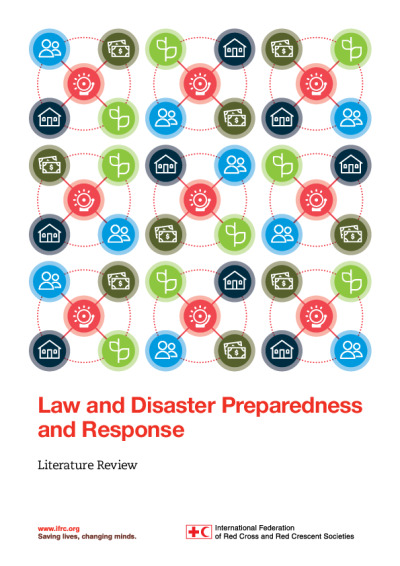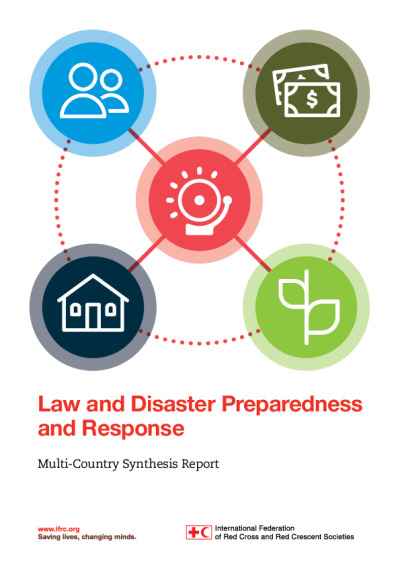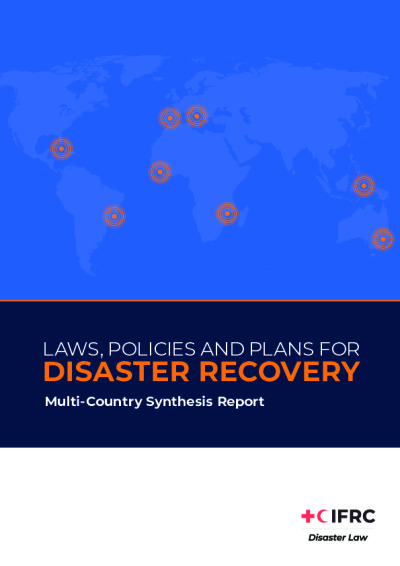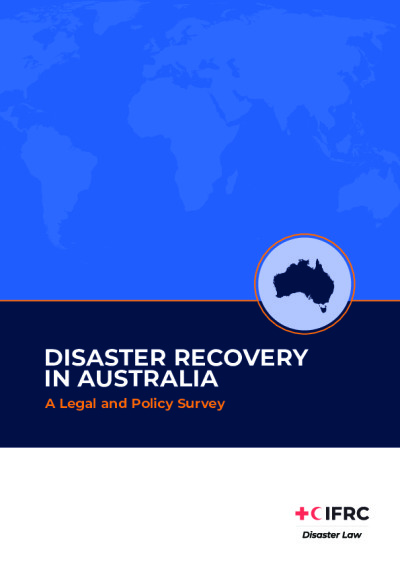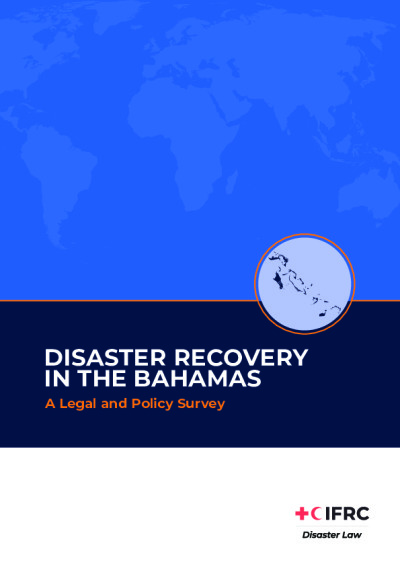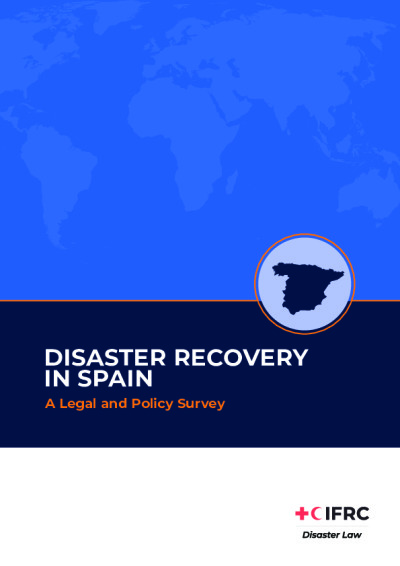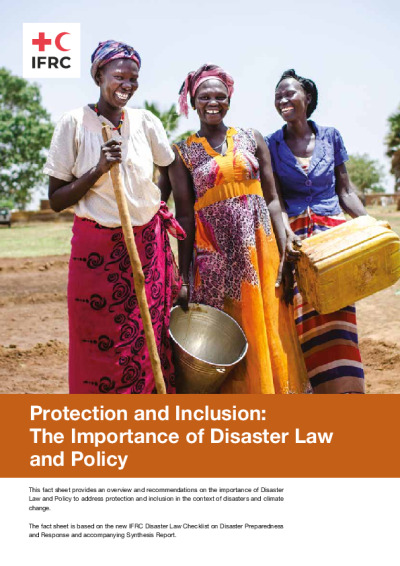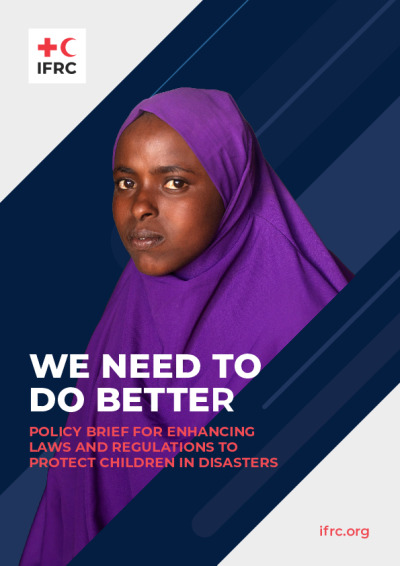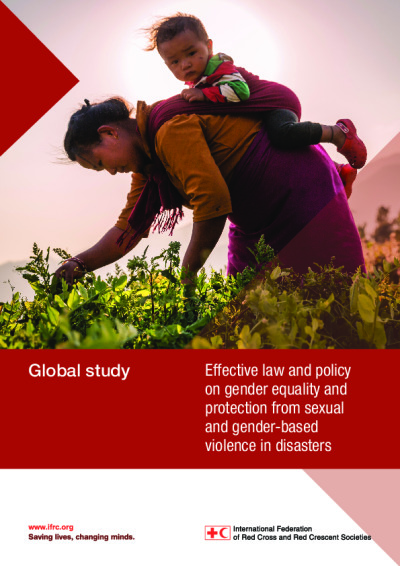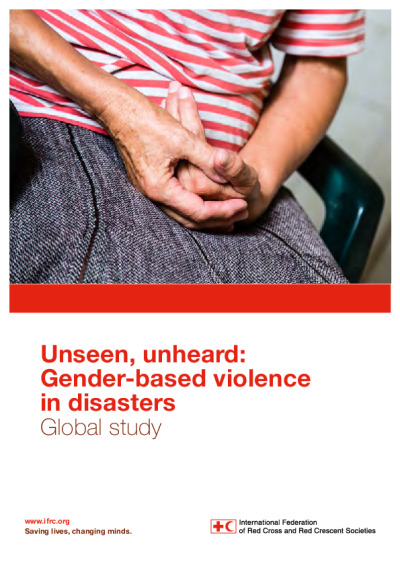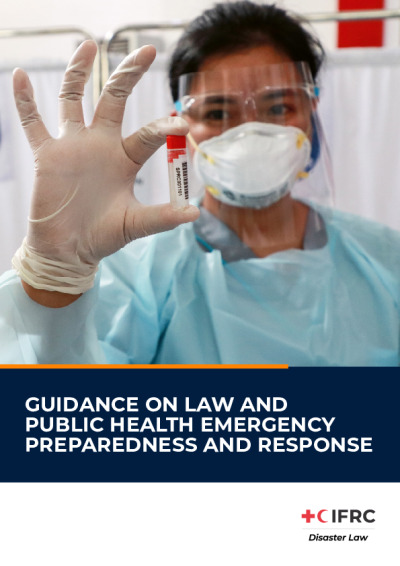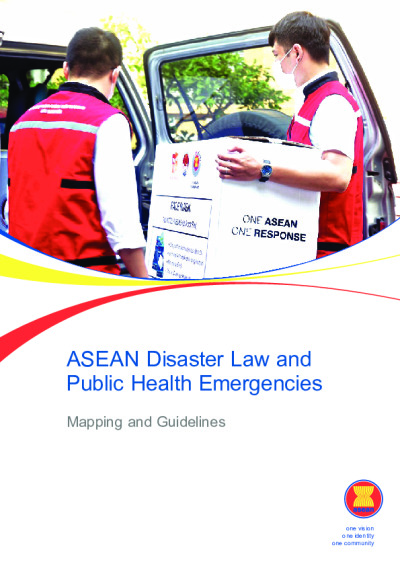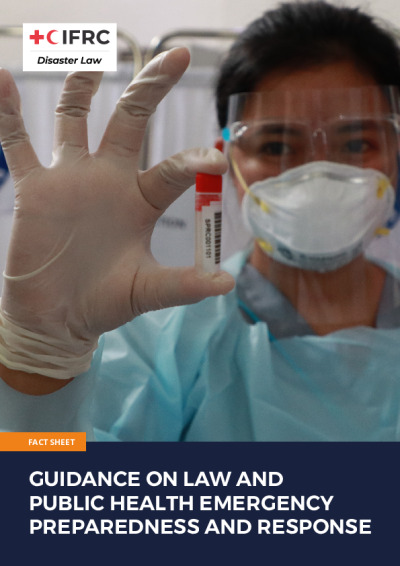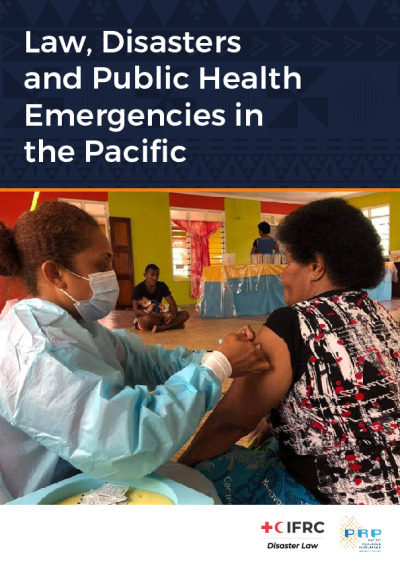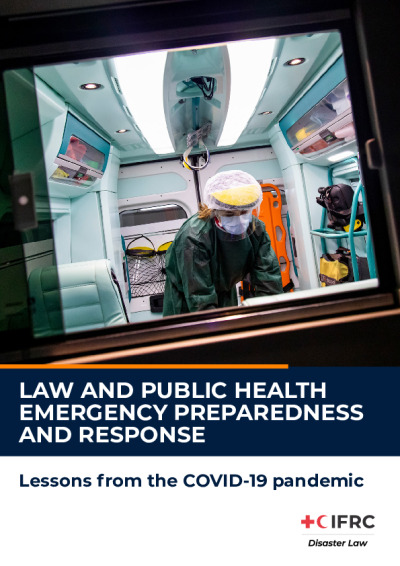
Experience has shown that even the best-prepared governments may need international assistance when a major disaster strikes. However, few governments are legally prepared to receive a sudden influx of international assistance. A lack of legal preparedness can delay lifesaving assistance, while also creating quality control and coordination problems.
International disaster response law (IDRL) is the area of disaster law which deals with the facilitation of international disaster assistance. IFRC Disaster Law is globally recognised as a leader in IDRL, having developed the Guidelines for the Domestic Facilitation and Regulation of International Disaster Relief and Initial Recovery Assistance (the IDRL Guidelines), which have been successfully used around the world.
The IDRL Guidelines are a set of recommendations to governments about how to prepare their disaster laws and plans to mitigate the common regulatory problems that arise in international disaster response operations. IFRC Disaster Law has also developed an IDRL Model Act, IDRL Model Emergency Decree and IDRL Checklist.
You can learn about IDRL by taking our introductory online training.
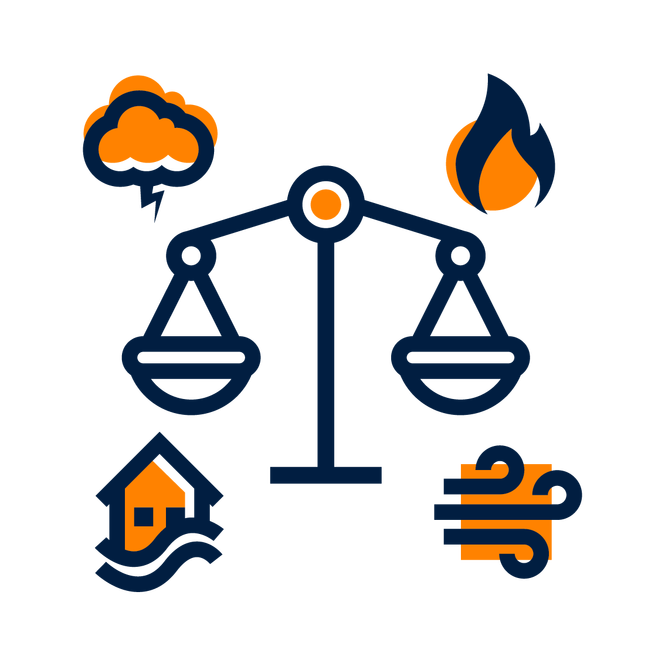
Laws and regulations are essential to reducing existing risks posed by natural hazards, preventing new risks from arising and making people safer.
Building and construction laws, for example, may contain minimum standards designed to make buildings more resilient to local hazards, while land use and planning laws may restrict new development in areas that are highly prone to natural hazards. In 2015, IFRC Disaster Law and the United Nations Development Programme launched The Checklist on Law and Disaster Risk Reduction (DRR Checklist) and its accompanying guide, The Handbook on Law and Disaster Risk Reduction (DRR Handbook), to provide practical guidance on this area of law.
The DRR Checklist provides a prioritised list of ten key questions that lawmakers, implementing officials and those supporting them need to consider to ensure that their laws provide the best support for disaster risk reduction. It is designed to serve as an assessment tool to guide a review of national and local level laws and regulations. The DRR Handbook supports the Checklist, by providing further guidance on how to answer the DRR Checklist questions including issues to consider, a rationale for each question, a list of the types of laws that need to be reviewed to answer the questions, and examples of good practice from different countries.
In the period 2019-2021, IFRC Disaster Law conducted a global research project in partnership with the UCC School of Law (Cork, Ireland) for the identification of successful practices and/or main challenges in the adoption of legislative improvements strengthening climate and disaster resilience. The project has received funding from the Irish Research Council and the European Union’s Horizon 2020 research and innovation programme under the Marie Skłodowska-Curie grant agreement No. 713279, and additional financial support was provided by the German Government.
Following a ‘Literature Review on Aligning Climate Change Adaptation (CCA) and Disaster Risk Reduction (DRR)’ consolidating existing knowledge on the topic, four country case-studies were conducted in different continents (Fiji/Pacific Island Countries; Philippines; Dominica and Kenya). These documents provided informed insights and original analysis on relevant normative advancements, assessing the actual impact of more integrated law and policies on CCA-DRR at different levels, and identifying suitable models for reducing vulnerabilities of the most at-risk. Building on them, a final Global Synthesis Report has been published, consolidating main findings and providing a list of key recommendations for law- and policy-makers.

Underpinning every disaster preparedness activity or response operation, whether large or small, is a network of laws, policies and plans which determine who does what, when and how.
In 2019, IFRC Disaster Law published The Checklist on Law and Disaster Preparedness and Response (DPR Checklist), an assessment tool that guides decision-makers through a series of targeted questions designed to identify gaps and weaknesses in existing domestic laws and policies.
The DPR Checklist is informed by recommendations developed by IFRC Disaster Law following a comprehensive review of existing literature and an analysis of the laws and policies of 20 countries, which were selected to represent a variety of regions and risk profiles. This research is published in the Multi-Country Synthesis Report on Law and Disaster Preparedness and Response.

Disaster law is a rapidly developing field with a growing body of research and guidance documents, and disaster recovery is a newer area of work for disaster law experts. IFRC Disaster Law’s work in this area is focused on researching the legal dimensions of disaster recovery, in order to develop recommendations for domestic law and policy makers. In 2020, we completed a Literature Review on this topic. In 2021, we are conducting country-level research into law and disaster recovery around the world.

Disasters discriminate. Women, children, older people, people with disabilities and many other groups may be disproportionately impacted by disasters, climate change and public health emergencies. They may be left behind in humanitarian response and left out of decision-making that affects them.
The Sendai Framework calls for a people-centred, inclusive and non-discriminatory approach to disaster risk reduction that pays special attention to people disproportionately affected by disasters. It specifically notes the importance of involving these groups in the design and implementation of policies, plans and standards.
IFRC Disaster Law works with Red Cross and Red Crescent National Societies and governmental authorities to ensure that laws and policies relating to disasters and climate change consider the needs of the most vulnerable people and provide opportunities for community engagement and inclusive decision making.
IFRC Disaster Law's research on the protection and inclusion of vulnerable people in disaster laws, policies and plans is world-leading. Our comprehensive recommendations on the protection and inclusion of vulnerable groups are presented in our Checklist on Law and Disaster Preparedness and Response.

The COVID-19 pandemic has highlighted the important role of law in responding to public health emergencies. Since the onset of the pandemic, countries around the world have declared states of emergency or disaster, passed reams of emergency legislation and dusted off existing laws, policies and contingency plans.
In 2020, IFRC Disaster Law embarked on the 'Law and Public Health Emergencies Research Project' to identify the key features of an effective domestic legal and policy framework for public health emergency preparedness and response. The project involved country-level desktop research undertaken in two stages.
The first stage of research was a mapping of COVID-19 emergency decrees in 113 countries during the initial stages of the pandemic. The second stage of research, which focused on 32 countries, involved a detailed assessment of domestic legal and institutional frameworks for public health emergencies.
IFRC Disaster Law has published a report synthesising the results of the country-level research and providing a detailed set of recommendations: Law and Public Health Emergency Preparedness and Response: Lessons from the COVID-19 Pandemic. A snapshot of the report is available here.
IFRC Disaster Law has also prepared a short guidance document based on the recommendations in the report: Guidance on Law and Public Health Emergency Preparedness and Response.
For more information about the upcoming consultation workshops, please contact disaster.law@ifrc.org.
IFRC Disaster Law has also prepared resources for Red Cross and Red Crescent National Societies facing humanitarian access challenges due to COVID-19 restrictions.
